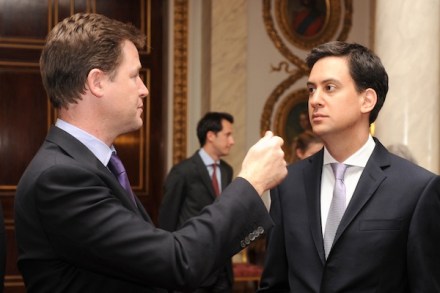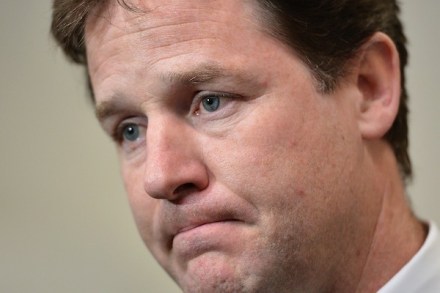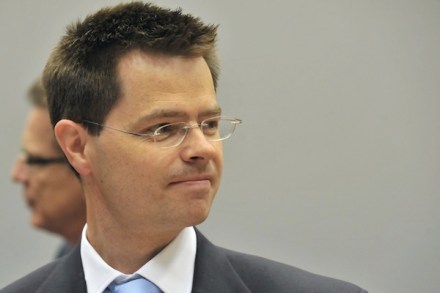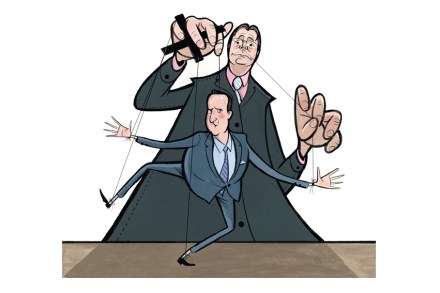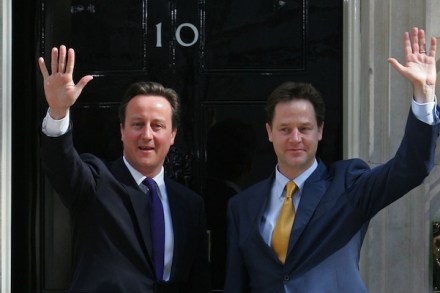Mid-term review: A return to the rose garden?
‘David Cameron and Nick Clegg get coalition better than anyone else in the government’ one Downing Street aide remarked to me recently, and watching the two men at today’s press conference you could see what they meant. Us hacks who came looking for disagreement or awkward body language went away disappointed. As they both talked about how the coalition had come together to deal with long-term challenges and, to quote Cameron, the ‘positive benefit’ of two parties working together on these issues, I wondered if they thought that a second term of coalition might be needed to deal with Britain’s long-term problem. Intriguingly, when asked Cameron refused to say that









